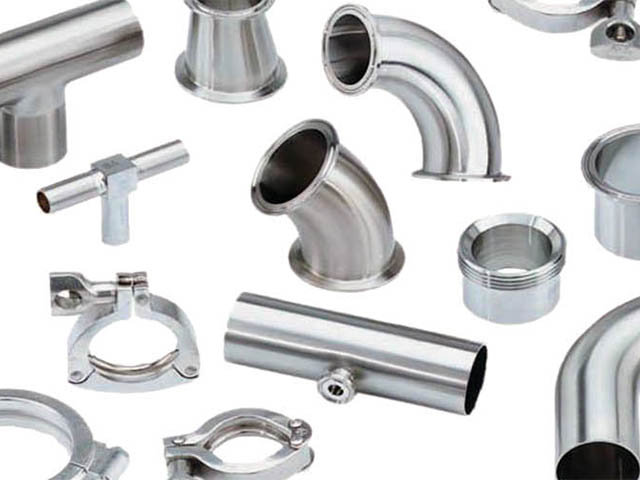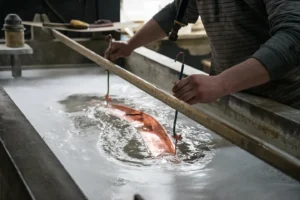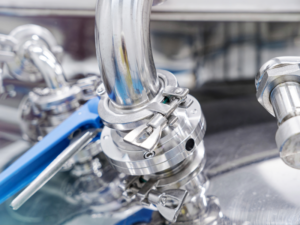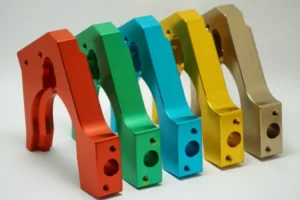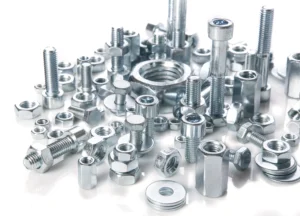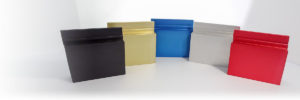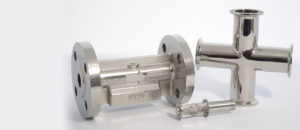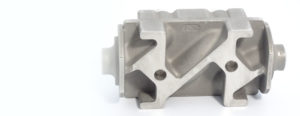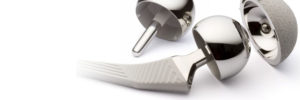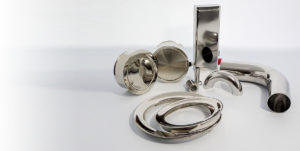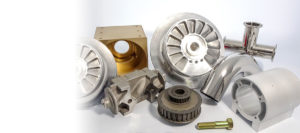Sanitary fittings and piping are used in the product manufacturing process for the food, dairy, beverage, brewery, home & personal care, pharmaceutical, biotech, and chemical industries. Each industry has its own guidelines and standards for materials, production, and cleanliness requirements.
Sanitary Fittings and Piping Industries
Food & Beverage
From the U.S. Food and Drug Administration (FDA) to the United States Department of Agriculture (USDA), and state regulatory authorities, there is no shortage of laws and regulations for the food and beverage industry. Some requirements apply to all food businesses, and others are specific to the food product, such as low-acid canned food, seafood, juice, eggs, and others. For obvious reasons, sanitary pipe fittings are a necessity for the hygienic conditions required in food and beverage processing.
Semiconductors
The manufacturing of electronics requires a clean and contaminant-free production environment. The standard for cleanrooms and associated controlled environments is the International Organization for Standardization, ISO 14644. And there are thousands of process standards under the global association, SEMI, which serves the electronics industry.
High-purity precision valves and stainless-steel fittings are crucial for the control and application of liquids and gases used throughout the semiconductor manufacturing process. The purity of the gas and sanitary fittings affect the quality and performance of the product, as well as operational stability and safety.
Life Sciences
The biopharmaceutical and pharmaceutical industries are the most demanding of all the industries utilizing sanitary fittings for manufacturing. New drugs developed in the U.S. endure some of the most rigorous regulatory requirements and documentation standards in the world. People expect the medicines they take to be safe and effective, and the Food and Drug Administration (FDA) carefully regulates the quality of pharmaceuticals. Hygienic, sanitary conditions and equipment are required to achieve the highest quality standards.
High purity processing equipment involves a complex network of fittings, tubing, pumps, tanks, vessels, and valves that are installed by knowledgeable and highly experienced mechanical contractors. Contractors specializing in process piping systems understand and comply with FDA requirements, the Code of Federal Regulations, the American Society of Mechanical Engineers (ASME) Bio-Process Engineering (BPE) Standards, the International Society of Pharmaceutical Engineering (ISPE) Baseline® Guide, and more.
Stainless Steel for Sanitary Fittings and Piping
Materials used in process piping must be extremely durable and prevent contamination. Aluminum piping is strong, corrosion-resistant, and can be used with salt solutions since it can withstand chloride corrosion. Titanium is extremely durable, corrosion-resistant, and costly but is advantageous in the production of acidic beverages and food.
Stainless steel is the most frequently used material for sanitary applications. It is durable, naturally corrosion-resistant, easy to clean, and economical relative to other materials. There are over 100 different grades of steel, but stainless steel grades 304 and 316 are the most preferred and widely used for producing sanitary pipe fittings, tri-clamps, gaskets, hoses, tubing, and valves.
Stainless steel 304 and 316 both contain a combination of elements including chromium, nickel, carbon, manganese. Applications involving acidic material, industrial solvents, or highly concentrated saline can cause corrosion and eventual failure of 304 stainless steel.
Grade 316 stainless steel contains molybdenum which is an element that enhances resistance to corrosion and pitting in chloride ion solutions. It can withstand more severe environments because it is more resistant to solutions of sulfuric acid, chlorides, bromides, iodides, and fatty acids at high temperatures. Stainless steel 316 costs approximately 25% more than the 304 grade but can save the costs of replacing a process line and manufacturing downtime.
Stainless steel 304 grade is suitable for water, beer, wine, dairy oils, most extracts, and most food products. More demanding applications such as pharmaceuticals, bleach, cleaning products, chemicals, and high salt content should use the 316 grade.
Surface Finishing
The surface finish of a part is a key factor in determining the types of products it can be used to manufacture. A part’s surface is measured to ascertain the roughness average (Ra). A profilometer measures the microscopic peaks and valleys of the part’s surface where bacteria and other contaminants can accumulate. The most important distinction between surface grades has to do with sanitary versus unsanitary finishes.
Sanitary tube fittings are polished to a point where the peaks and valleys are minimized or eliminated altogether. When pipe fittings, tri-clamps, gaskets, hoses, tubing, and valves are used in the manufacturing of pharmaceuticals and costly ingredients, reducing the risk of contamination is a high priority. The lower the roughness average the smoother the surface.
The standard finish for food and dairy applications is 32Ra, while pharmaceutical and biopharmaceutical applications use the ASME BPE standard, which ranges from SF0 to SF6. Furthermore, equipment, fittings, piping, and valves that are used in the production, storage, or distribution of liquid and gaseous oxygen must be cleaned to comply with ASTM G93 and CGA G-4.1 standards.
Process piping installations are significant projects with no room for delays and when you need additional parts, you need them fast. AMF Technologies provides quick turn-around for last-minute orders of tubing and fittings that require oxygen cleaning service or high purity finishing. We’re here to help you get your project back on track.
For questions or quotes, give us a call 781-982-0137, send an email sales@amftechnologies.com, or complete our contact form.
